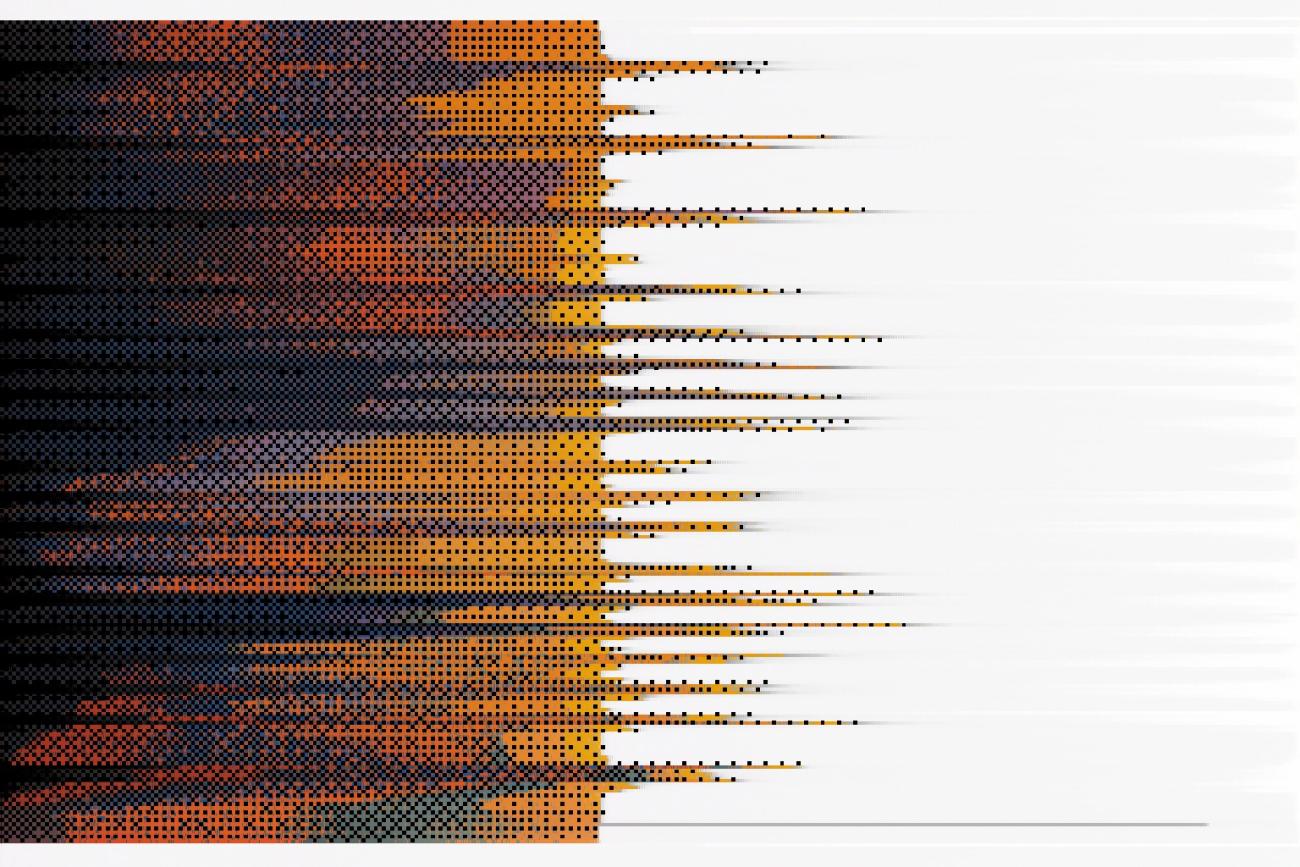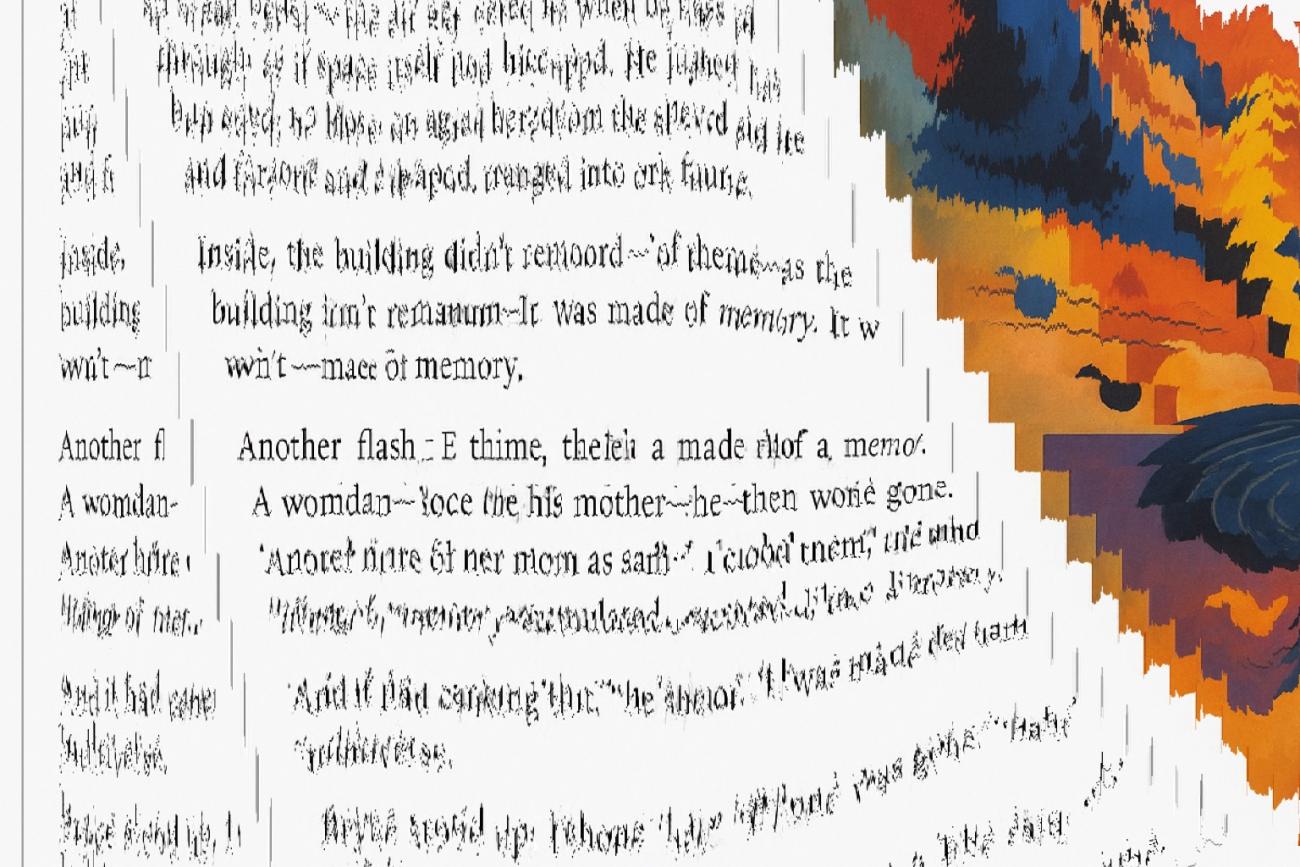

Bryce didn’t remember walking in.
He remembered crossing 11th Street, sure—dodging a cyclist who looked like a sentient echolocation map—but then: a bell, the throb of a door that thunked like an organ pedal, the air getting colder and older and somehow grape-stained. The front window reversed itself when he passed through, as if space itself had hiccuped. He glanced back: the sign said Vintage, but he swore it hadn’t always.
Inside, the building had the feeling of a cathedral that had retired from organized religion and taken up literature and fermented grief. The floors whispered. The wine bottles murmured in tones only the dusk could understand. No music played, but his mind was full of static, of old analog television noise made of pages fluttering and snatches of conversations he hadn’t yet had.
Then, his first flash:
The room snapped to grayscale.
A woman across the room sat reading a worn paperback of Desert Solitaire while her eyes leaked mercury. A dog lay at her feet, but it blinked like an owl. Bryce tried to speak, but his voice came out as a typewritten note: You’re in the wrong chapter. Then she and the room dissolved into ink.
He came back. The bar was real again, Jean was behind it, smiling like someone who knew what not to say.
"Zinfandel?" she asked. But Bryce shook his head.
"I think… I think I’ve been here before."
"Of course," she said. "Everyone important has."
He took a seat on the balcony overlooking the street. The city below looked different—hyperreal this time. Electric blue birds winged through the air in sinuous arcs of invisible magnetism. They weren’t real birds; they were something deeper. The magnetic field itself had erupted into flight. Cars moved slower than memory. Time bled sideways. He pressed his palms into the table to anchor himself.
Another flash. This time, his mother was sitting across from him, though she’d been dead eight years. She sipped from a glass of deep red liquid and looked younger than he remembered, less tragic.
"Why here?" he asked her.
"Because," she said, "this is the place that listens."
Bryce blinked, and she was gone. In her place was a copy of The Unbearable Lightness of Being, turned to a dog-eared page he somehow recognized from a night when he was seventeen, high, and learning what heartbreak really tasted like.
He began to understand: the building didn’t remember things; it was made of memory. Not his memories, not exclusively. But human ones—accumulated and curated, like a library where time cataloged itself.
And it had called him. He hadn’t walked here. Not really. Some sidewalk in his life had tilted just enough, and he slipped in through a crack in the frame.
A voice behind him—deep, rusted, amused—said: “Some people bring dogs. You brought your whole damn multiverse.”
He turned. No one was there.
Another flash. A hundred timelines coiled above the wine racks like steam. Bryce saw himself as a girl, as a priest, as a war deserter, as a very old man reading by candlelight while the power grid collapsed. All of them had passed through Vintage. All of them had written something down and forgotten it—on a receipt, a bathroom mirror, a bookmark tucked into Blood Meridian.
Bryce stood up.
“I don’t want to forget this,” he said aloud.
Then Jean was beside him again. She poured him something amber, floral, strange.
“You won’t,” she said. “Not entirely.”
And the building—not speaking, but meaning—let out a long, exhausted breath.